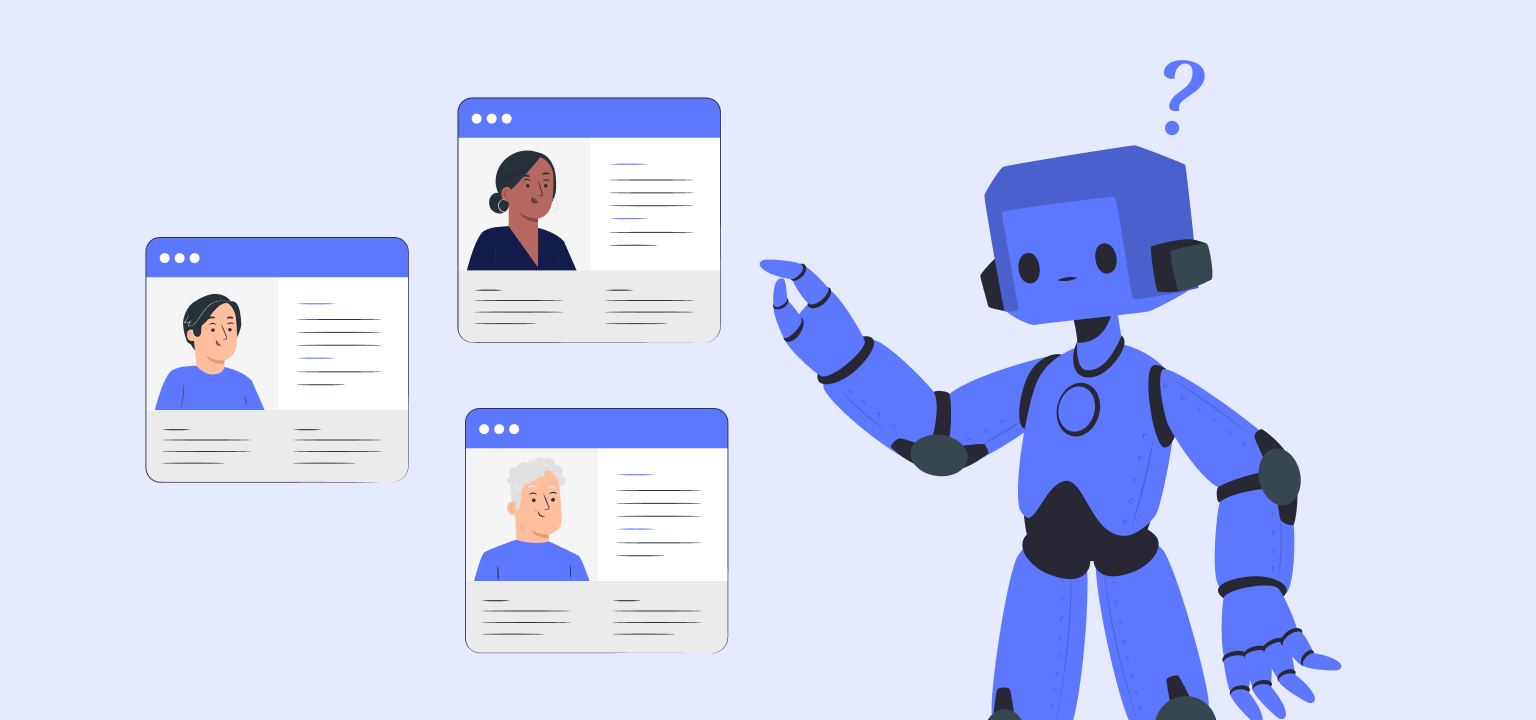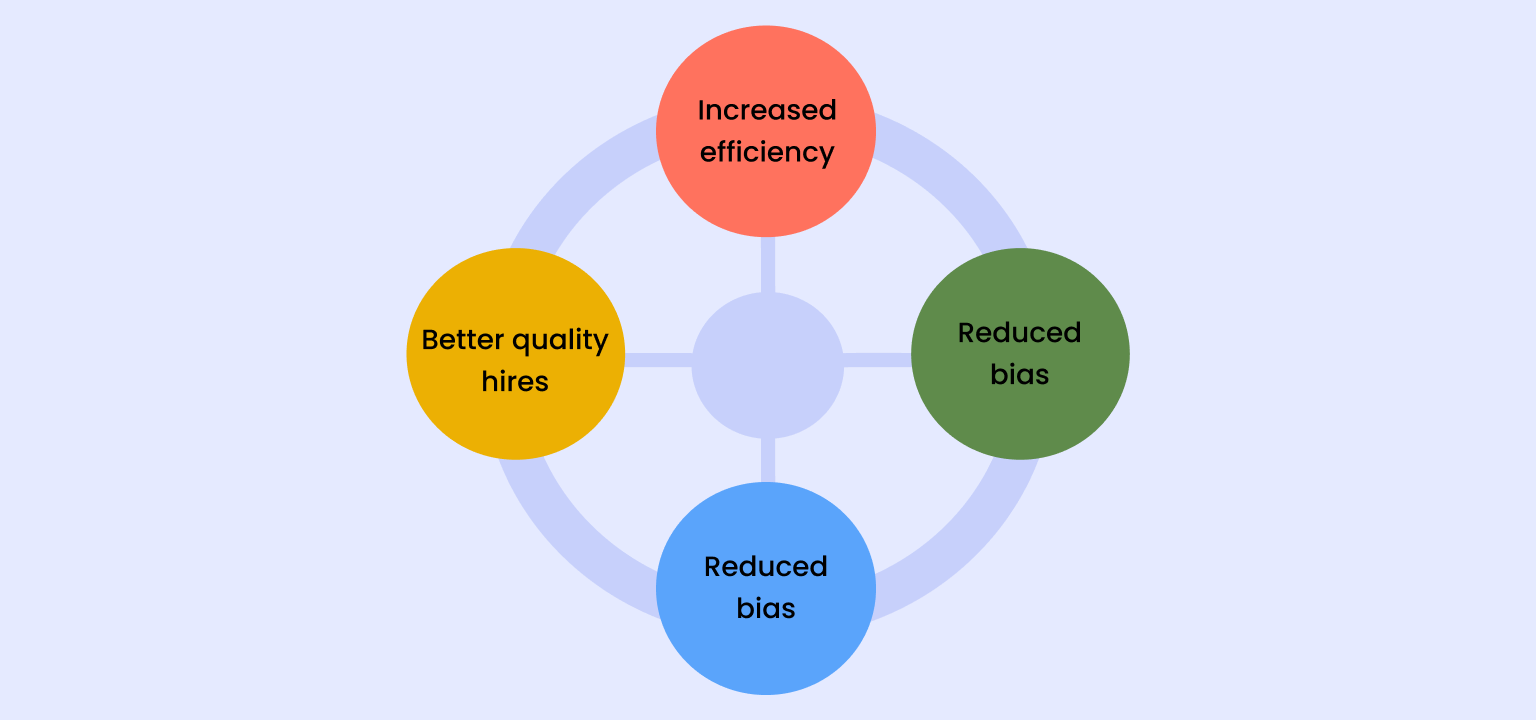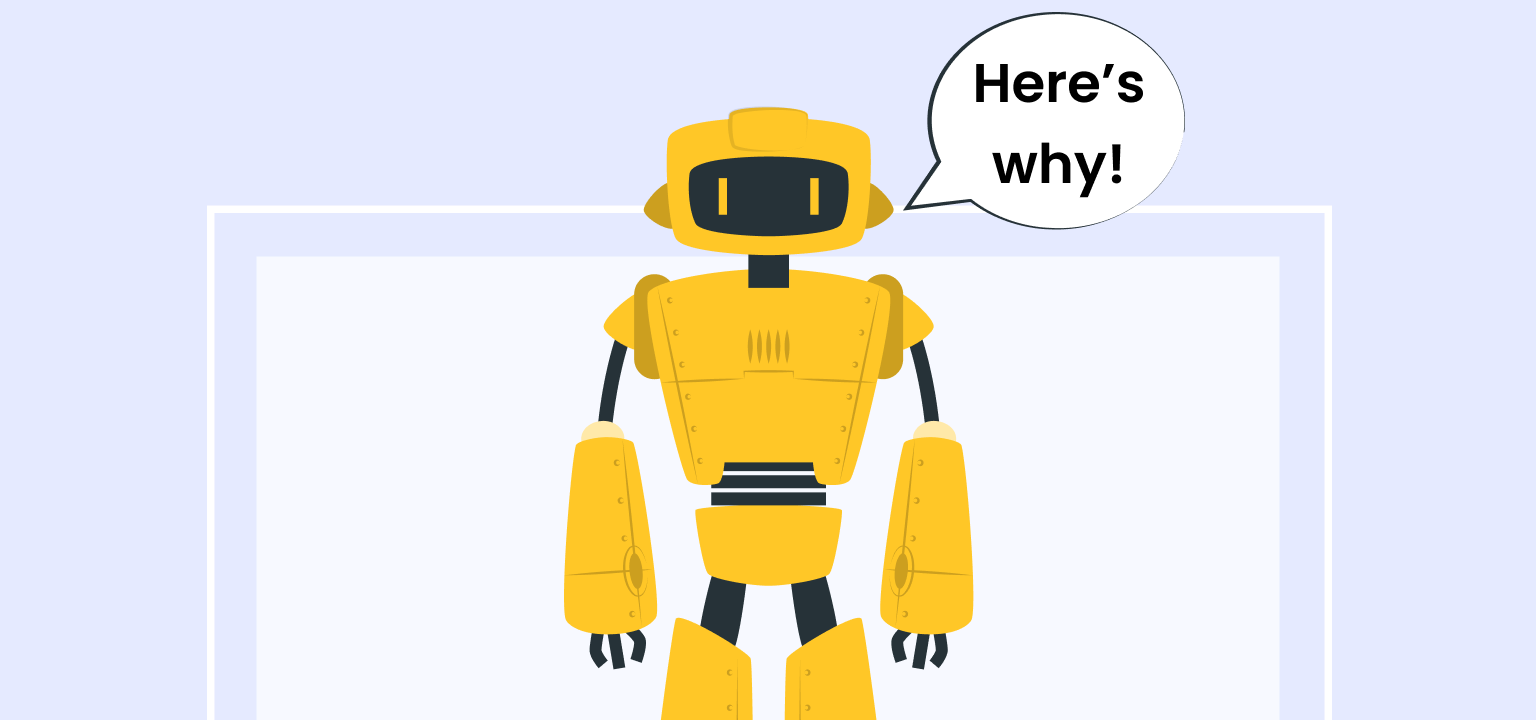AI’s place in recruitment is becoming more and more prominent as the field continues to grow. A significant factor that makes AI so useful for recruitment is its ability to pick up on patterns that humans would otherwise miss.
It can analyze large sets of data very quickly, tell you which candidate is most likely to be successful, can run simulations on what your company could look like if you hired a specific group of people, and can even be used to filter out any candidates who don’t meet the minimum requirements for a job.
AI takes over many time-consuming tasks that Human Resource departments have been taking care of, allowing them to focus their energies elsewhere and work toward other goals.
How to use AI in recruitment

Streamlining the recruitment process
AI integrates seamlessly into Applicant Tracking Systems (ATS) to automate and streamline key recruitment tasks. From posting job ads to sorting applications, AI-driven ATS platforms significantly reduce manual effort and time spent on repetitive tasks.
Enhancing candidate screening
AI excels in analyzing vast amounts of candidate data quickly and accurately. It can evaluate resumes and applications to identify the most promising candidates based on predefined criteria, ensuring that only the most suitable candidates move forward in the recruitment process.
Improving interview scheduling
AI tools can automatically schedule interviews based on the availability of candidates and hiring managers. This not only speeds up the hiring process but also enhances the candidate experience by making interview scheduling more convenient and flexible.
Virtual hiring
With the rise of remote work, AI has become crucial in facilitating virtual hiring. AI-powered tools can conduct initial screening calls, video interviews, and even virtual onboarding sessions, making the hiring process more efficient and accessible regardless of geographic boundaries.
Benefits of using AI in recruitment

Increased efficiency
AI dramatically enhances the recruitment process by automating initial stages such as resume screening and initial assessments. Traditionally time-consuming, these tasks can now be completed rapidly, freeing up HR professionals to focus on more strategic elements like candidate engagement and relationship building. This not only accelerates the hiring workflow but also optimizes talent acquisition.
Reduced bias
A significant benefit of integrating AI into recruitment is its ability to minimize unconscious bias. Programmed to assess candidates based on skills and qualifications alone, AI tools ensure a level playing field, promoting diversity and making the hiring process more equitable.
Cost reduction
Implementing AI can also lead to substantial cost savings in recruitment. Automating tasks such as application sorting and preliminary evaluations reduces the need for extensive manpower during these stages, decreasing both administrative expenses and the costs associated with conducting multiple interview rounds. Moreover, by enhancing the accuracy of candidate-to-job matching, AI can decrease turnover rates, cutting long-term hiring costs.
Better quality hires
AI’s advanced algorithms analyze extensive data points to identify the best matches for job requirements, surpassing the capabilities of manual processing. This meticulous analysis ensures that only the most suitable candidates progress to the interview stage, boosting the quality of hires. This not only improves team performance but also supports retention, as well-matched employees are more likely to enjoy and remain in their roles.
Future trends in AI recruitment
The future of AI in recruitment looks promising, with ongoing advancements leading to even more sophisticated HR tools. Predictive analytics, machine learning models, and natural language processing will further refine how recruiters identify, attract, and retain talent. These technologies will provide deeper insights into candidate capabilities and potential, transforming the traditional hiring workflow into a more strategic component of business success.
Moreover, as virtual hiring becomes more prevalent, AI’s role in facilitating remote interviews and virtual onboarding will become a standard practice, making it easier for companies to tap into a global talent pool.
Why organizations should use AI in recruitment

AI has been changing the way recruitment is done in organizations worldwide. Companies that have incorporated artificial intelligence in their hiring process are already observing its benefits.
Some of the most prominent reasons to use AI-powered recruitment tools include recruitment automation, eliminating bias, time efficiency, candidate screening, interview scheduling, etc.
HR leaders are being asked to use this new wave of technology to transform their business processes. The intent is to use AI to help HR deliver value more efficiently and cost-effectively.
PyjamaHR is one such ATS that offers all the features listed above and many more. It helps employers ensure their processes are as smooth and effective as possible.
Its AI algorithms have been specially designed to achieve the best results for recruiters and hiring managers when screening resumes. PyjamaHR is an effective AI tool designed to help you fill positions quickly and efficiently.
Takeaway
The integration of AI into the recruitment process, particularly through sophisticated ATS systems, marks a significant shift in how businesses approach hiring. Companies leveraging AI in their recruitment strategies, such as those using PyjamaHR, are setting new standards for efficiency and effectiveness in talent acquisition.
AI is not just transforming the hiring workflow; it’s revolutionizing the entire recruitment landscape by enabling faster, fairer, and more effective hiring practices. As we look to the future, AI’s role in recruitment will continue to grow, influencing how companies build their teams and secure competitive advantage through top-tier talent.

